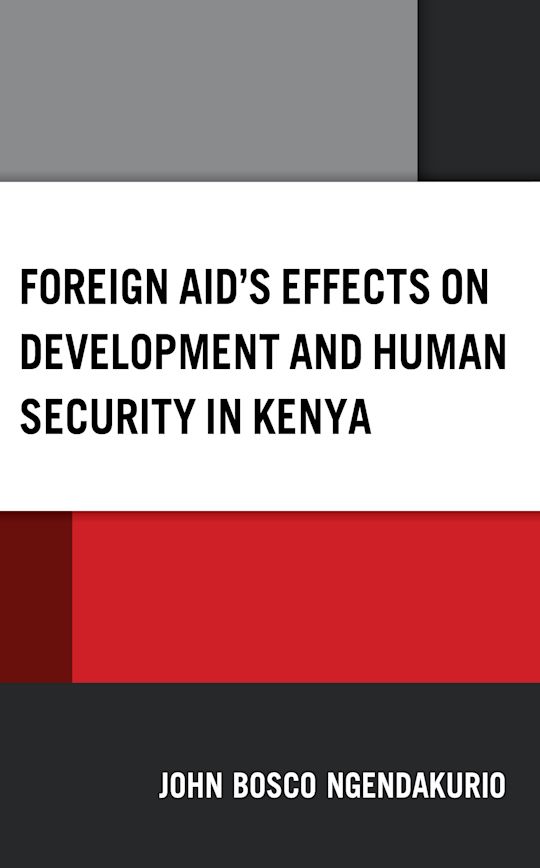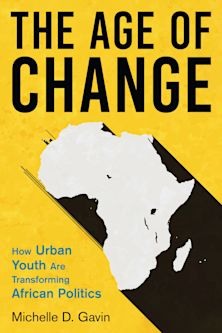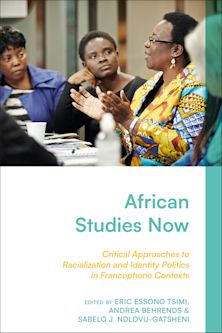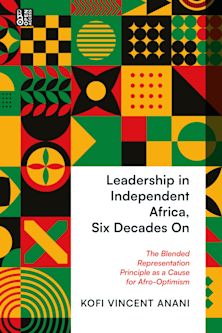- Home
- ACADEMIC
- Politics & International Relations
- African Politics
- Foreign Aid's Effects on Development and Human Security in Kenya
Foreign Aid's Effects on Development and Human Security in Kenya
Foreign Aid's Effects on Development and Human Security in Kenya
This product is usually dispatched within 10-14 days
- Delivery and returns info
-
Free UK delivery on orders £30 or over
You must sign in to add this item to your wishlist. Please sign in or create an account
Description
More than $1 trillion has been transferred to Africa from rich countries in development-related aid in the last 50 years. Despite this, poverty levels continue to surge. Using Kenya as a case study, Foreign Aid’s Effects on Development and Human Security in Kenya by John Bosco Ngendakurio demonstrates the effects and limitations of foreign aid on development and human security in poor countries. Kenya, a sub-Saharan African country and recipient of large-scale foreign aid, is a microcosm of what is happening in Africa and a good place to start to address the following question: How does foreign aid affect human security? Through archival research and interviews, Ngendakurio identifies that the key challenges to foreign aid effectiveness in Kenya are the complexities of Kenyan human security issues, the legacies of colonialism and neo-colonial practices as well as foreign aid’s controversies, including corruption, bureaucracy, donor fatigue, and international actors’ hidden agendas. Providing a geopolitical analysis of the long-term effects of colonialism in Kenya, this book investigates foreign aid schemes to contribute further knowledge and firsthand accounts to reshape the processes for the benefit of both the donors and the intended beneficiaries.
Table of Contents
Introduction: Kenya, A Major Recipient of Foreign Aid
Chapter One: The Concept of Human Security and the Politics of International Law
Chapter Two: Key Human Security and Development Problems in Kenya
Chapter Three: The Legacies of British Colonial Rule and Neo-Colonial Practices in Kenya
Chapter Four: History and Processes of Foreign Aid
Chapter Five: Bypass Theory: An Effective Way to Prevent Foreign Aid’s Capture in Bad Governance and Corruptive Practices
Conclusion: Discussions and Recommendations
Bibliography
About the Author
Product details
| Published | 22 Jan 2025 |
|---|---|
| Format | Hardback |
| Edition | 1st |
| Extent | 146 |
| ISBN | 9781666943702 |
| Imprint | Lexington Books |
| Dimensions | 229 x 152 mm |
| Publisher | Bloomsbury Publishing |
About the contributors
Reviews
-
Foreign Aid's Effects on Development and Human Security in Kenya is not only an important contribution to foreign aid analyses in relation to human security in Kenya but also composes a plural and complex picture of today's rising multilateral world, exploring the possibilities and limits of bypass theory. This is a must-read for readers in African studies, development studies, critical global studies, international law, and related fields.
Mark Hrubec, Global Studies Association of North America
-
John Bosco Ngendakurio went back to Africa to examine what happens when the West delivers development aid, and now he tells some complex truths. Ngendakurio has written a compelling book that makes you think about what has gone wrong with the aid and how it can be fixed.
David Peetz, Professor Emeritus, Griffith University

ONLINE RESOURCES
Bloomsbury Collections
This book is available on Bloomsbury Collections where your library has access.


































